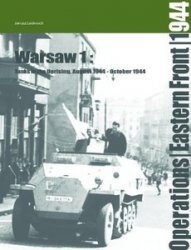CsABABiEKEiS is Director of the Cold War History Research Centre in Budapest. He is the author of Az 1956-os magyar forradalom a vildgpolitikdban [The 1956 Hungarian Revolution and World Politics] and coeditor of The 1956 Hungarian Revolution: A History in Documents.
Mark Philip Bradley is Professor of History at the University of Chicago. He is the author of Imagining Vietnam and America: The Making of Postcolonial Vietnam and Vietnam at War: The Search for Meaning.
Anne Deighton is Professor of European International History in the Department of Politics and International Relations, University of Oxford. Among her publications are The Impossible Peace: Britain, the Division of Germany, and the Origins of the Cold War and Building Postwar Europe: National Decision-Makers and European Institutions, 1948-1963.
David C. Engerman is Associate Professor of History at Brandeis University. He has published Modernization from the Other Shore: American Intellectuals and the Romance of Russian Development and, as coeditor, Staging Growth: Modernization, Development, and the Global Cold War.
JESSICA C. E. Gienow-Hecht is Professor of International History at the University of Cologne. She is the author of Transmission Impossible: American Journalism as Cultural Diplomacy in Postwar Germany, 1945-1955 and Sound Diplomacy: Music and Emotions in Transatlantic Relations.
Sayuri Guthrie-Shimizu is Professor of History at Michigan State University. She is the author of Creating People of Plenty: The United States and Japan’s Economic Alternatives, 1950-1960.
William I. Hitchcock is Professor of History at Temple University. He is the author of The Bitter Road to Freedom: A New History of the Liberation of Europe and The Struggle for Europe: The Turbulent History of a Divided Continent, 1945-Present.
David Holloway is Raymond A. Spruance Professor of International History at Stanford University. He is the author of Stalin and the Bomb: The Soviet Union and Atomic Energy, 1939-1956 and The Soviet Union and the Arms Race.
Melvyn P. Leffler is Edward Stettinius Professor of American History at the University of Virginia. He is the author of A Preponderance of Power: National Security, the Truman Administration, and the Cold War and For the Soul of Mankind: The United States, the Soviet Union, and the Cold War.
Laura McEnaney is the Nadine Austin Wood Chair in American History at Whittier College. She is the author of Civil Defense Begins at Home: Militarization Meets Everyday Life in the Fifties and "Nightmares on Elm Street: Demobilizing in Chicago, 1945-1953,” Journal of American History.
Robert J. McMahon is the Ralph D. Mershon Distinguished Professor at the Ohio State University. He is the author of Dean Acheson and the Creation of an American World Order and Cold War on the Periphery: The United States, India, and Pakistan.
Charles S. Maier is Leverett Saltonstall Professor of History at Harvard University. He is the author of Among Empires: American Ascendancy and Its Predecessors and Dissolution: The Crisis of Communism and the End of East Germany.
Vojtech Mastny is coordinator of the Parallel History Project on Cooperative Security. His books include Russia’s Road to the Cold War: Diplomacy, Warfare, and the Politics of Communism, 1941-1945 and The Cold War and Soviet Insecurity: The Stalin Years.
Norman Naimark is Robert and Florence McDonnell Professor of East European Studies in the History Department at Stanford University. He is the author of Fires of Hatred: Ethnic Cleansing in Twentieth-Century Europe and The Russians in Germany: The History of the Soviet Zone of Occupation, 1945-1949.
Niu Jun is Professor in the School of International Studies at Peking University. His publications include From Yan’an to The World: The Origin and Development of Chinese Communist Foreign Policy and China’s Foreign Policy Decision Making during the Cold War.
David S. Painter teaches international history at Georgetown University where he has a joint appointment with the Department of History and the School of Foreign Service. His publications include Oil and the American Century: The Political Economy of US Foreign Oil Policy, 1941-1954 and The Cold War: An International History.
Vladimir O. Pechatnov is Professor of European and American Studies at the Moscow Institute of International Relations (MGIMO). He has written Stalin, Ruzvelt, Trumen: SSSR i SShA v 1940-kh gg. Dokumental’nye ocherki [Stalin, Roosevelt, Truman: The USSR and the USA in the 1940s. Documentary Essays] and is coauthor of Debating the Origins ofthe Cold War: American and Russian Perspectives.
David Priestland is University Lecturer at the University of Oxford. He is the author of Stalinism and the Politics of Mobilization: Ideas, Power, and Terror in Inter-War Russia and The Red Flag: A History of Communism.
SVETOZAR Rajak is Academic Director at LSE IDEAS, the London School of Economics and Political Science's center for the study of international affairs, diplomacy, and strategy. He is the author of Yugoslavia and the Soviet Union in the Early Cold War, 1953-1957.
H ans-Peter Schwarz is Professor Emeritus of the Rheinische Friedrich-Wilhelms-Universitat Bonn. His publications include Das Gesicht des Jahrhunderts: Monster, Retter, und Mediokritaten and the two-volume Adenauer: A German Politician and Statesman in a Period of War, Revolution, and Reconstruction.
William Stueck is Distinguished Research Professor of History at the University of Georgia. His books include The Korean War: An International History and Rethinking the Korean War: A New Diplomatic and Strategic History.
Odd Arne Westad is Professor of International History at the London School of Economics and Political Science. Among his publications are Decisive Encounters: The Chinese Civil War, 1946-1950 and The Global Cold War: Third World Interventions and the Making of Our Times.
Shu Guang Zhang is Professor of History at the University of Maryland, and the author of Economic Cold War: America’s Embargo against China and the Sino-Soviet Alliance, 1949-1963 and Mao’s Military Romanticism: China and the Korean War, 1950-1953.




 World History
World History









